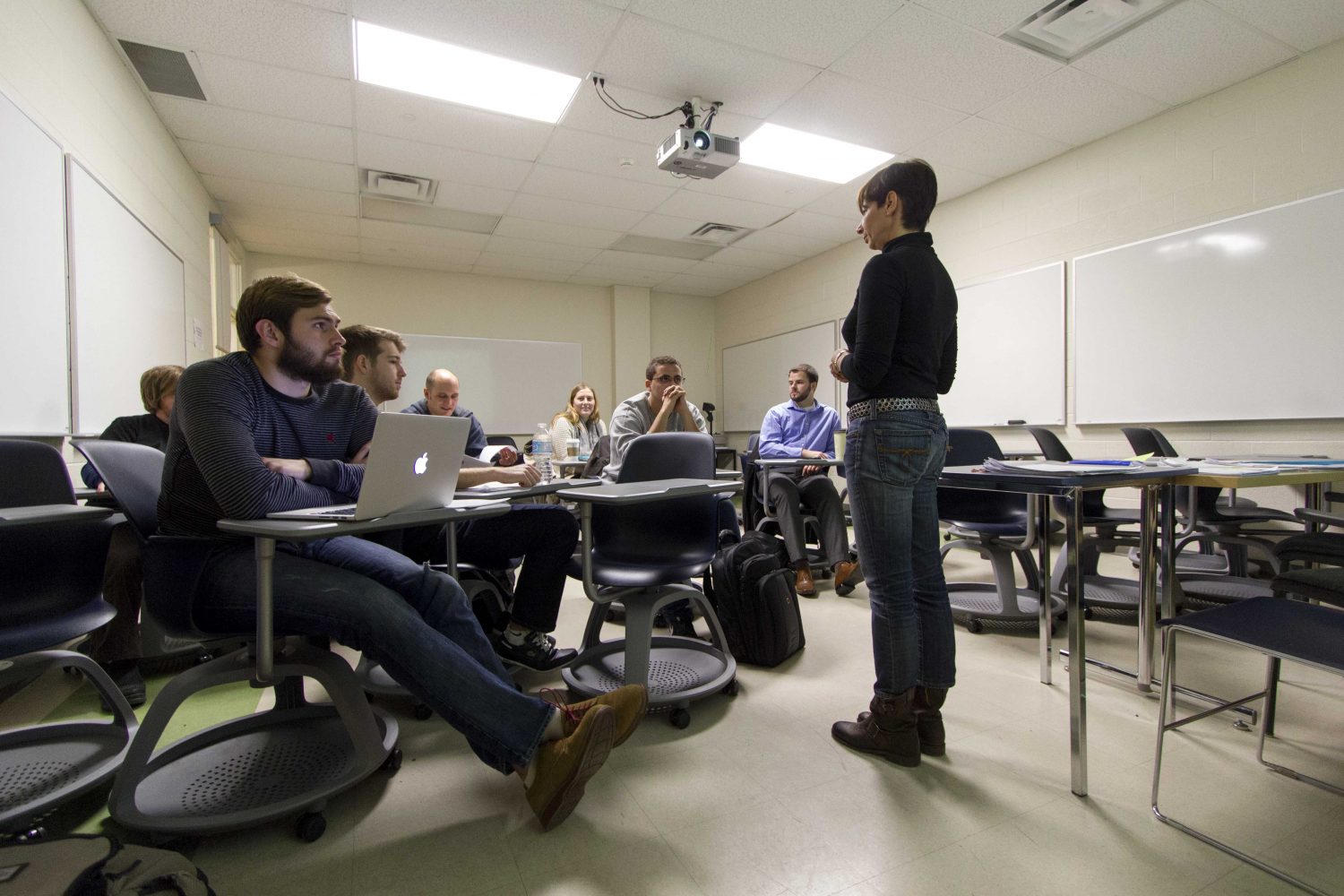Laurier students engage with Syrian refugees through seminar


This semester, 40 students at Wilfrid Laurier University will be participating in a religion and culture seminar entitled Local Response to the Syrian Refugee Crisis.
The course is taught by Laurier’s associate dean of student affairs and learning, Dr. Gavin Brockett.
Students will have the opportunity to engage with local Syrian refugee families, as well as participate in an active learning environment.
According to Brockett, the purpose of the course is for students to study the experiences of refugees that are settling into the Kitchener-Waterloo region and become more familiar with the various organizations and institutions that are helping them integrate into life in Canada.
Although the course is run under the religion and culture department, any student is eligible to enroll in it. The class list even includes a few first-year students.
Two components will make up the interactive portions of the class. The first includes the participation of seven different organizations that are involved in sponsorship and settlement integration of refugees.
Representatives from the organizations will be coming into the class and talking with students about the roles they play in the process.
However, according to Brockett, the most important component of the class is the students’ participation in a series of dinners. The dinners will take place at Laurier’s Harris Hope House on Albert Street and will involve refugee families as well as members of the community.
“This is a deliberate, what we call a community intervention which students become the facilitators of integration and in which the students learn from the refugees because the Syrian families will be teaching them Syrian cuisine [and] Syrian culture,” said Brockett.
Students will be responsible for coordinating ingredients and actually cooking the meal with the families before sitting down to eat it together.
The students will be accompanied by translators in some instances, however not all dinners will have a translator present.
“The Syrian families have a limited degree of English, enough for us to work with. This is one of the important parts of the experience, for my students to understand the challenges of cross cultural communication, when language issues are part of the challenge,” said Brockett.
Brockett is known for favouring an interactive learning environment and creating emotional connections to the information he teaches according to fourth-year global studies student Emilia Zibaei, one of the students taking the class.
“Because of the way that he structures it, or the resources he puts in the syllabus, you’re always going to expect something emotional from a learning experience, which makes me more attached to what I’m learning about,” said Zibaei.
Her inspiration for taking the class came from the need to get a different perspective on the Syrian refugee crisis.
“I knew that taking this course it wouldn’t just be a lecture, I would probably be interacting with actual Syrian refugees and we actually are. I definitely wanted a different perspective into the crisis. I feel like growing up in Canada, you’re kind of in a really safe bubble, you can empathize but it’s hard to really understand what they’re going through,” said Zibaei.
According to Brockett, the course will run throughout the remainder of the fall semester, with the potential of a follow-up course being developed depending on its success.
Note: Emilia Zibaei is a photographer for The Cord.

